Search
Remove Ads
Advertisement
Search Results
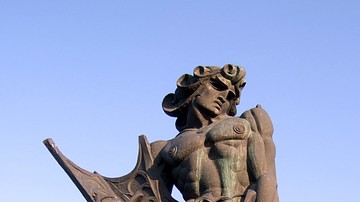
Definition
Armenian Mythology
The mythology of ancient Armenia is a rich blend of indigenous traditions with imported ideas from neighbouring cultures and migrating peoples added over the centuries. The legends and stories helped to explain natural phenomena, provide...

Definition
Mesrop Mashtots
Mesrop Mashtots (360/370 - c. 440 CE) invented the Armenian alphabet in 405 CE. Besides greatly increasing levels of literacy in the country, the language permitted ordinary people to read the Bible for the first time, thus helping to further...

Definition
Movses Khorenatsi
Movses Khorenatsi (Moses of Khoren) was a 5th-century CE Armenian historian whose work the History of the Armenians has earned him the title of the “father of Armenian history”. Drawing on ancient sources and ambitiously covering the history...
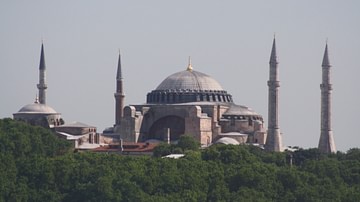
Definition
Trdat the Architect
“Trdat the Architect” or Tiridates (c. 940s-c. 1020s?) was a Armenian architect who is noted for his role in the reconstruction of the Hagia Sophia's dome in Constantinople following an earthquake in the 10th century CE, as well as the Cathedral...
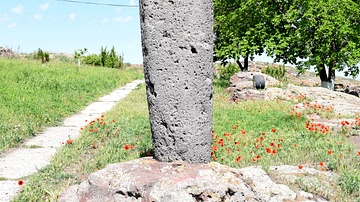
Image
Vishap Stone at Metsamor, Armenia
This Vishap stone (or "Vishapakar" in Armenian) dates from prehistoric times and sits just in front of the Metsamor Historical-Archaeological Museum-Reserve in Taronik, Armenia. Vishap stones or "serpent stones" are menhirs found across Armenia...
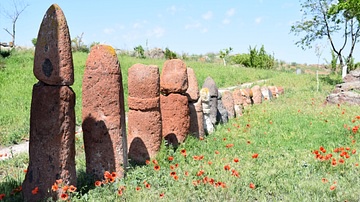
Image
Vishap Stones at Metsamor, Armenia
These Vishap stones (or "Vishapakar" in Armenian) date from prehistoric times and sit just beside the Metsamor Historical-Archaeological Museum-Reserve in Taronik, Armenia. Vishap stones or "serpent stones" are menhirs found across Armenia...
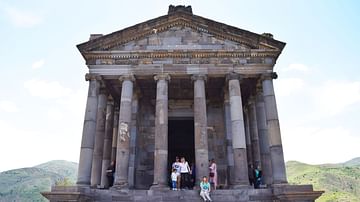
Image
Front View of Garni Temple in Armenia
Built in in Ionic style around 77 CE, the Temple of Garni is the masterpiece of King Tiridates I of Armenia (r. 52-58, 62-88 CE). It remains a potent symbol of Armenia's deep historic ties to the classical civilizations of Greece and Rome.
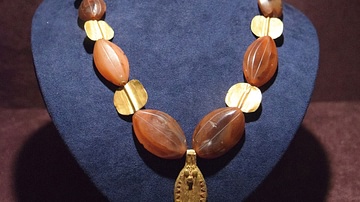
Image
Necklace from Ancient Armenia
This necklace was unearthed in what is now present-day Armenia and dates from the 15th-13th century BCE. It contains gold and other sardonyx beads. (Metsamor Historical-Archaeological Museum-Reserve, Taronik, Armenia)
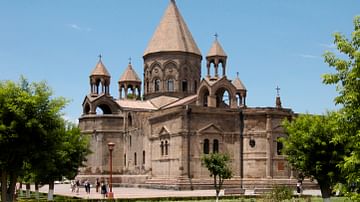
Definition
Etchmiadzin Cathedral
The Etchmiadzin Cathedral (also spelled "Echmiatsin,” “Echmiadzin,” and “Edjmiadsin”) is located in the city of Etchmiadzin (also referred to as Vagharshapat), Armavir Province in what is now present-day Armenia. It is geographically situated...
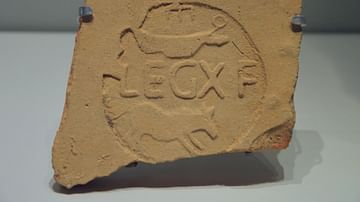
Definition
Legio X Fretensis
Legio X Fretensis was a legion of the Roman army formed by either Julius Caesar or Augustus. The legion spent most of its existence in the East, primarily in Judea. It participated in Corbulo’s two Armenian campaigns as well as Vespasian...